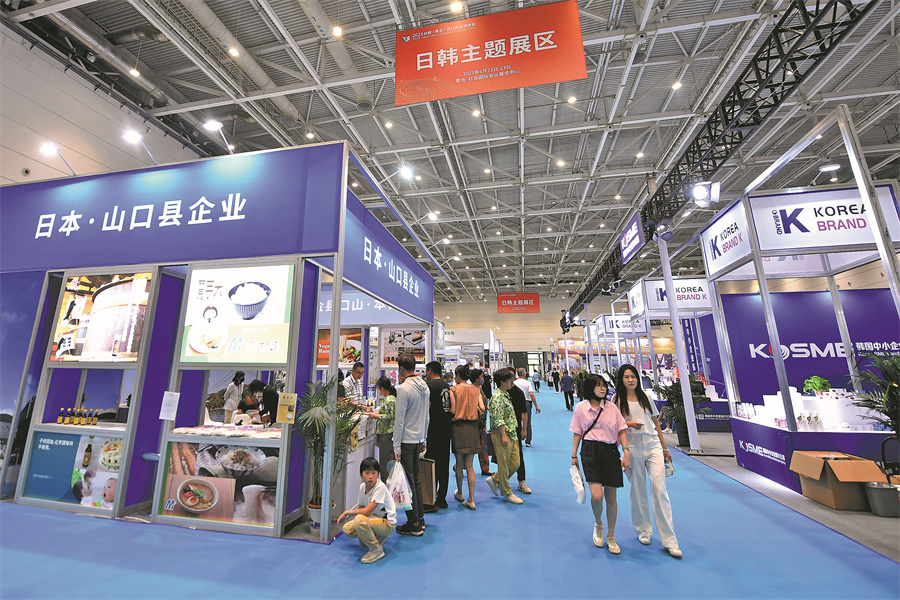Trilateral summit refocuses on cooperation
It heralds China, Japan, S.Korea's willingness to navigate through rough waters in regional landscape


SEOUL — Leaders of China, Japan and South Korea met in Seoul in late May for a trilateral summit, more than four years after it was last held in 2019.
The resumed gathering through the established framework among the three neighbors is significant, as it heralds the trio's willingness to redirect focus on dialogue and cooperation and navigate through rough waters in the regional landscape and beyond.
People of the three countries hope that the meeting will boost trilateral cooperation, deliver win-win results and help to promote regional prosperity and stability.
More necessary than ever
Chinese Premier Li Qiang, Japanese Prime Minister Fumio Kishida and South Korean President Yoon Suk-yeol attended the trilateral summit meeting, the trilateral business summit and other events.
It is generally believed that cooperation and solidarity among countries are desperately needed to address major challenges facing this region and the world, including protectionist trends, armed conflicts, supply chain restructuring and climate change.
In an ever-evolving global and regional landscape featuring economic uncertainty and geopolitical volatility, the three-way cooperative network in Northeast Asia, which was stalled due to geopolitical interference and the COVID-19 pandemic, is more necessary than ever.
Trilateral relations have been facing fluctuations for quite some time, but recent high-level interactions indicate that the trio is making an effort to fix them.
Liu Qing, vice-president of the China Institute of International Studies, said the resumption of the trilateral talks sent "a strong message" that the three countries are committed to resolving disputes through diplomatic means.
"It is hoped that the leaders of the three countries will discuss critical issues including rebuilding trust, expanding economic and trade cooperation as well as cultural exchanges, and strengthening current cooperation mechanisms," Liu said ahead of the summit.
Though it is still early to predict concrete results, the convening of the meeting "will be an accomplishment in its own right", said the Japan Times.
Lee Hee-sup, secretary-general of the Trilateral Cooperation Secretariat, said that the meeting "will serve as an opportunity to revive various cooperation projects and revitalize trilateral cooperation".
"The three countries need to share a clear perception that win-win-win through cooperation, not confrontation and conflict, is the only way forward for national interests and the happiness of their peoples," Lee said.
Wide-ranging partnership
Twenty-five years after its inception, the trilateral meeting has grown from an economy-focused gathering aimed at countering financial crisis into a full-fledged, multi-tier mechanism that promotes cooperation in a spectrum of areas.
After a hiatus of more than four years, the ninth edition of the meeting focused on reestablishing and enhancing collaborative mechanisms.
The then Chinese Foreign Ministry spokesman Wang Wenbin said that China stands ready to work with Japan and South Korea to implement the Trilateral Cooperation Vision for the Next Decade and other important common understandings.
Wang was talking about the document released at the eighth summit in Chengdu, Sichuan province, in December 2019, which mapped out the route for trilateral cooperation. The trio agreed to expand cooperation in environmental protection, climate change, health, aging population, scientific and technological innovation, sports, youth and other fields.
Strengthening people-to-people exchanges was a palpable focus for this year's summit.
Tourism, for example, continues to be a main driver in this regard. According to Ctrip, an online travel agency in China, Japan ranked first among foreign countries in attracting Chinese tourists during the Golden Week holiday in May. Panda fever, meanwhile, has made panda-themed tours to China's Sichuan province a popular option for South Koreans.
Noting that the three neighbors share many cultural similarities, Lee said that the TCS, launched in 2011 to promote peace, prosperity and shared culture among the three nations, is ready to foster closer ties among their people.
The institution plans to expand youth exchanges through projects such as a youth summit, youth ambassador program and youth speech contest this year.
Strengthening supply chain stability, expanding markets and increasing investment remained high on this year's agenda to boost economic integration and enhance regional economic resilience.
Hwang Jae-ho, director of the Seoul-based Institute for Global Strategy and Cooperation, said attention was also being paid to whether the three parties would be able to speed up negotiations over the China-Japan-South Korea free trade agreement and enhance cooperation in supply chains.
Citing the semiconductor sector as an example, Liu said that despite pressure from the United States, China's industrial chain continues to benefit Japanese and South Korean companies.
While competition among the three countries remains a constant, the potential for cooperation is increasingly critical, as each of the three brings unique strengths to the table, Liu said.
- President hails signing of trilateral rail agreement
- Region draws strength from Asian values: China Daily editorial
- China favors security for all in Asia-Pacific
- China Japan and South Korea show desire to cooperate at trilateral summit
- China-Japan-ROK meeting spurs hopes for more regional cooperation




































